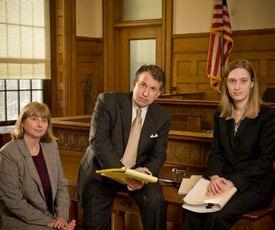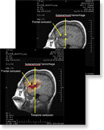Premises Liability
Advocating for Safe Playgrounds, Walkways, Stairs, Buildings, and Living Spaces
A landowner or person in control of property has a responsibility to act reasonably to keep the property safe for lawful visitors. Maintenance and repair companies similarly have to act reasonably in performing their work.
We have handled premises liability cases involving the following hazards that led to otherwise preventable accidents on property:
- Floors and walks made dangerous by uneven, wet, or slippery surfaces, worn carpeting, cracks and defects
- Stairs with broken stair treads, non-uniform risers, or missing handrails
- Changes in elevation camouflaged by homogenous colors and materials
- Inadequate lighting
- Lack of security
- Lack of safety glass
- Elevators that have not been properly maintained
- Elevators with inaccurate rating capacities
- Escalators with exposed or accessible parts that can catch clothing and body parts
- Unexpected housekeeping operations without warnings having been posted or pedestrian traffic diverted to other areas
- Renovations and repairs conducted without informing tenants, and without diverting tenants and visitors to other locations
- Uncontrolled traffic and unsafe traffic patterns in busy parking lots
- Driveways, entrances and exits lacking adequate sight lines for motorists
- Defective heating systems leading to poisonous fumes and fires
- Defective wiring leading to electrocutions and fires
- Lack of depth markers and no-diving signs at swimming pools
- Broken playground equipment
- Lack of protective mats on gymnasium walls
Recovering Damages for Premises Liability Accidents
If you have been injured by an unsafe condition on property, you may be entitled to recover compensation for the following damages:
- Medical expenses, long term rehabilitation and continuing care
- Loss of earnings and diminished earning capacity
- Physical and emotional pain and suffering
- Loss of consortium and society. Your spouse and children may be entitled to compensation for their loss of your affection, support, companionship and other elements of their relationship with you
Statute of Limitations.
Generally, Massachusetts allows three years for you to file a premises liability claim, but the facts of your particular case may result in less time or special notice requirements.
Due to the time necessary to properly gather evidence and investigate a case before filing suit, and the need to preserve evidence, you should retain an attorney immediately upon suspecting the basis for a premises liability claim.
How We Use Evidence to Win Your Premises Liability Case
From the inception of a case, we consider the types of "demonstrative evidence" that will bring alive key pieces of evidence and help a jury understand your case.
- Videotapes and still photography showing the accident location
- Composite photographs of the property
- Digitally enhanced architectural blueprints that focus on areas where an accident happened
- Safety regulations and safety standards
- Case specific illustrations superimposing safety improvements that should have existed
- Vintage photographs, advertisements, and professional literature showing long-standing availability of safety improvements
As in our other cases, we use digital technology to create “demonstrative evidence” to explain our client’s injuries:
- Color enhanced CT scans, MRIs or x-rays that show our client’s injuries
- Case specific medical illustrations showing pertinent anatomy or steps in a surgical procedure
- Medical calendars summarizing our client’s medical treatment
Results for Premises Liability Cases
We have over 20 years experience winning recreation and sports accident cases. We have collected millions of dollars for our clients over the years.

Learn How Evidence Wins Cases
A personal injury case can hinge on a single piece of evidence, one key witness, or a seemingly minor detail that is easily overlooked. Read More

